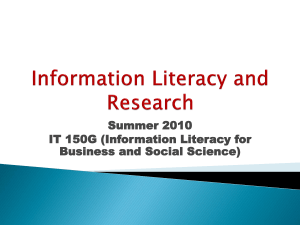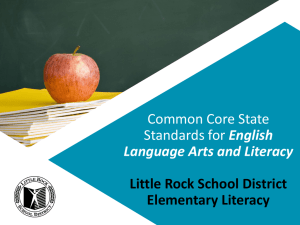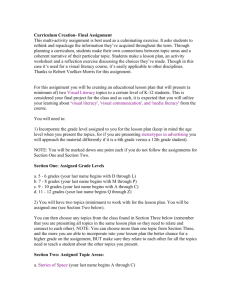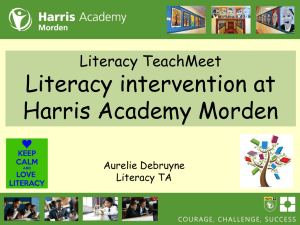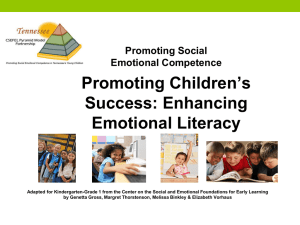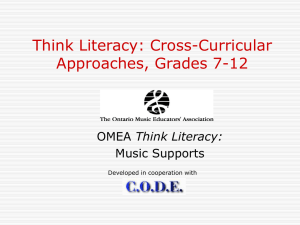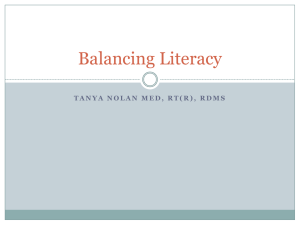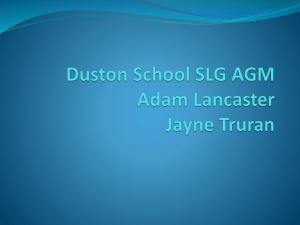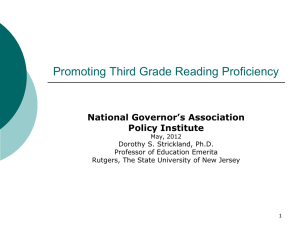FinancialLiteracy
advertisement
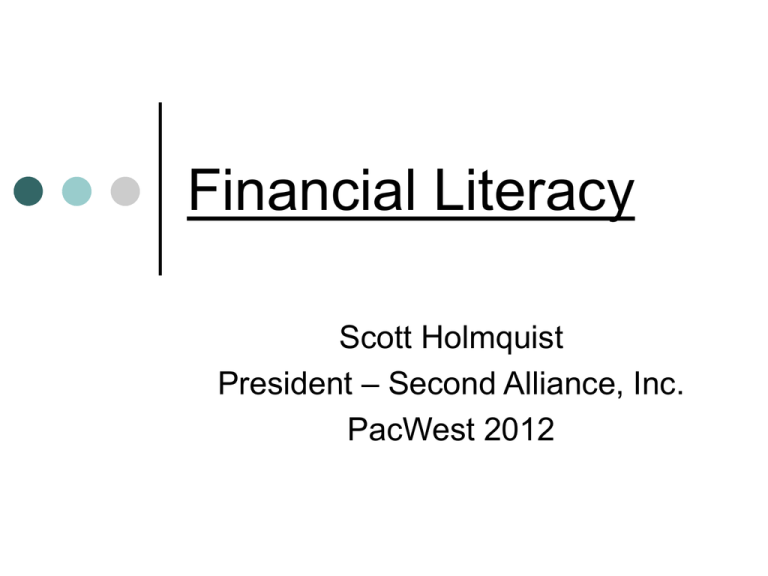
Financial Literacy Scott Holmquist President – Second Alliance, Inc. PacWest 2012 The College Campus Today http://www.youtube.com/watch?v=I_ZbOPnL7_M&feature=related What is Financial Literacy? Financial literacy is the ability to understand finance. More specifically, it refers to the set of skills and knowledge that allows an individual to make informed and effective decisions through their understanding of finances.[1] Raising interest in personal finance is now a focus of state-run programs in countries including Australia, Japan, the United States and the UK.[2] Planning Materials Budget Worksheet Debt Management Worksheet Financial Goals Worksheet Prioritizer Calculator Budget Tools Assessment Worksheets Assessment Worksheets Personal Financial Assessment Net Worth Worksheet Credit Control Debt Load Worksheet Debt to Income Ratio Formula Financial Discipline Borrowing Conservatively Spending Wisely Living Within a Budget And So Much More Student Loans Buying a Car Buying a House Shopping for One Shopping for a Family The Cost of Fast Food The Cost of Auto and Medical Insurance The Cost of Not Having Insurance Keeping a Savings Account And So Much More Having and Using Credit Cards The Cost of Living on Credit Cards Interest Rates Buying Furniture – New or Used Screening a Roommate Lease Agreements Early Termination Foreclosure Default And So Much More Understanding Your Credit Report Fair Issac Score FICO Building Your Credit Wisely Maintaining Your Credibility Getting Married Having a Baby Taking Vacations Entertainment Expences What is Financial Illiteracy The Systemic Costs of Foolishness Interest Rates Grades and Transcripts Promotions and Salaries Living Behind the Curve High Interest Loans Here’s the Reality Total Cost $294.46 x 47 = $13839.62 $388.40 x 47 = $18,254.80 Who’s Responsible? All of us. Survey on Financial Literacy 48% of financial aid administrators said their school provides Financial Literacy Of these only 13% make their curriculum mandatory Almost half indicated less than 10% of their students are served by this program www.studentlendinganalytics.com Survey on Financial Literacy Of 156 Schools Surveyed 38% No website presence 13% Webpage dedicated entirely to Financial Literacy 28% Financial Literacy tab or link on main Financial Aid website 5% Information under “Other” or “Resources” page on Financial Aid website 20% Financial Literacy information on a website other than Financial Aid Northwestern University Achieving Culture Change C = (D x V) + A > R Change will occur when sufficient Dissatisfaction (D) with the current system exists, when everyone has a clear Vision (V) of the goals for the future, and when it is clear what Actions (A) can be taken to move the system in the direction of the vision. All of these elements must be in place and larger than the Resistance to change (R) present in the organization. Dissatisfaction is critical because it "unfreezes" the status quo. Once the uncomfortableness of the gap is felt, people are more open to change. In most cases there needs to be a focus on creating a "dissatisfaction" with the current situation and this is achieved with a renewed challenge to the organization and a new set of consequences that discourage the status quo. The dissatisfaction needs to be lead from the top and managed throughout the organization, and needs to maintain the consequences so people are motivated to move away from the present situation. Vision is a clear sense of overall direction that guides behavior. Everyone within the organization needs to be committed. When change is as a result of implementing new technology or a change of leadership it is pertinent they take advantage of such a window of opportunity to engage others and ensure understanding of and a recommitment to the vision. Action Steps are the tangible milestones that guide and assist the organization progress toward the vision. Although each action plan for change will be different, all action plans should have the following components: Strategy and measures - a systematic course of action and allocation of resources to achieve the organization's change goals and measurement systems that track progress. It is important to realize that no measurement system is going to perfectly capture all of the important elements of performance or all of the behaviors that people need to do for the organization to be successful. So, measurements should be guides, helping to direct behavior, but not so powerful in the implementation that they substitute for the judgment and wisdom that is so necessary to acquire knowledge and turn it into action. Project organization - a clear designation of the authority, responsibility and relationships that will drive the change efforts. Systems and training - the procedures and processes that will facilitate the change implementation throughout the organization that includes teaching the specific skills that people need to enable the change. Style - the behavior of managers as they move to achieve organizational goals. Common values - the common bond, culture, and other factors that link team members and make them want to achieve organizational goals. In most organizations there is an opportunity to align these values with the vision and objectives, transforming the objectives into more sensory, emotive and inspirational ideals that motivate all employees and engage the wider group of stakeholders. Technology - the actual advancements, equipment, tools, or machinery that will affect the way work is accomplished. If new technology is being implemented at the same time as a wider change process it is imperative its implementation is aligned with the organization's values. Resistance comes from inadequate and/or inappropriate systems within the organization, which shape the "identity" of the organization. It can also come from a lack of alignment with the organization's values with those of the employees. In organizations with restrictive budgets the resistance may actually come in the form of a lack of capital to invest in employees, revamping workplaces, or enhancing other performance support systems Administrator Buy-In Reputation Success Rate Employment Averages Salary Averages Corporate Leadership Societal Impact Standards for Future Students Name recognition (good or bad) Needs Testing Your School Will be Unique Delivery Methods One-time Workshops or Seminars Series of Workshops or Seminars Session or seminar during freshman orientation Online courses (internal and external) Academic course offered for credit One-on-one counseling with a staff member One-on-one counseling with a peer. Also Peer to Peer - Guest Speakers Your Student is your #1 Asset Gamification http://www.youtube.com/watch?v=bvUXf1nMU94 Resources Don’t Reinvent the Wheel Promotional Plan Sell Sell Sell Actions Steps Needs Testing Vision – Finding Alignment Administrator Buy-in Resources Culture Change C = (D x V) + A > R Strategy and Measures, Project Organization, Systems and Training Delivery Method Student involvement Promotional Plan Resources http://www.igrad.com/blog/index.aspx http://www.mymoney.gov/ http://www.studentdebthelp.org/ http://www.youngmoney.com/credit-debt/ http://www.upromise.com/welcome http://cheapscholar.org/2011/04/28/top-ten-best-studentfinancial-literacy-resources-on-the-web/ http://www.fdic.gov/consumers/consumer/moneysmart/in dex.html http://www.jumpstart.org/ http://www.usafunds.org/Pages/default.aspx

